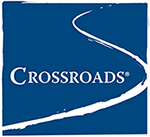Eating Disorder Treatment Center
 Crossroads has established itself as a leader in the treatment of addiction and behavioral health since opening its doors in 1974. Throughout this time, there has been an increasing number of women in Maine not only struggling with substance use disorders but also eating disorders. The eating disorder treatment center in Portland, Maine was created to deal with these co-occurring disorders. According to the Academy for Eating Disorders, 50% of people with eating disorders also have a substance use disorder.
Crossroads has established itself as a leader in the treatment of addiction and behavioral health since opening its doors in 1974. Throughout this time, there has been an increasing number of women in Maine not only struggling with substance use disorders but also eating disorders. The eating disorder treatment center in Portland, Maine was created to deal with these co-occurring disorders. According to the Academy for Eating Disorders, 50% of people with eating disorders also have a substance use disorder.
Both addiction and eating disorders are complex conditions; there is not a single cause or solution. This can make it challenging for women and their families to find effective ways of managing these issues and begin a healthy path to recovery. Engaging in a fully integrated treatment program that addresses the intricacies of how these disorders impact one another and allow women to explore the challenges they face and find what works best for their needs is essential.
Signs and Symptoms of Eating Disorders
Today’s society has a preoccupation with appearance and weight, which can make identifying eating disorders more difficult. It can be easy to dismiss symptoms as a woman just trying to look or feel healthier or keep up with the latest fads. But eating disorders run much deeper. Early detection can support women in getting the help they need for eating disorder recovery and learning to love their bodies. Depending on the type of eating disorder, symptoms can vary:
- Excessive dieting, excessive overeating, or a combination of overeating and then purging
- Extremely focused on diet, weight, exercise, or appearance
- Refuses to eat certain foods or food groups
- Avoidance of specific food textures or colors; increasingly picky about eating
- Frequently tries new diets
- Avoids eating around others or only takes very small portions
- Frequent trips to the bathroom after eating
- Fear of choking or vomiting when eating
- Poor dental health from purging
- Dizziness upon standing
- Constantly feels cold
- Noticeable changes in weight; unable to maintain a healthy weight for body type
These are just a few of the symptoms associated with anorexia nervosa, bulimia nervosa, binge eating disorder, otherwise specified feeding or eating disorder (OSFED), and avoidant/restrictive food intake disorder (ARFID). The symptoms of these disorders require immediate attention and can be helped at an eating disorder treatment center.
